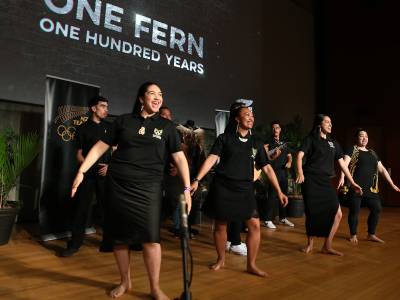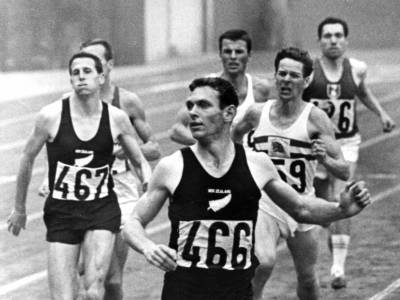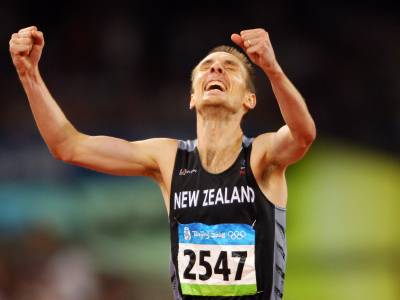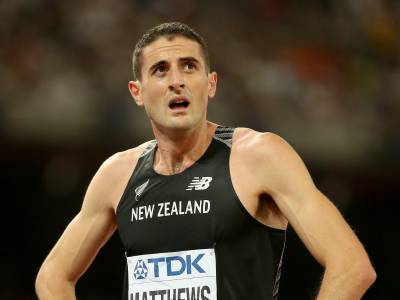Article by Micheal Warren
As the 2020 Olympic Games are looming on the international sporting calendar and athletes start the qualification process for Tokyo, the 2020 Olympic Games will bring about a special milestone for New Zealand.
Rewind the clock 100 years to 1920, and the first New Zealand team was sent to an Olympic Games. The Antwerp 1920 Olympic Games were the first games following WWI and a team of four New Zealanders took part. In 1908 and 1912 New Zealand athletes took part in the Olympic Games as part of the wider Australasian team. Darcy Hadfield was the standout performer in Antwerp, winning bronze in the rowing single sculls event. This was the beginning of continued Olympic success in rowing for New Zealand. New Zealand has won 24 medals in rowing at the Olympic Games, and this number is expected to grow in 2020 when the games go to Tokyo.
Fast-forward the clock 44 years from 1920, and it was in 1964 that Asia hosted the Olympic Games for the first time, when the Japanese capital of Tokyo played host to the world’s pre-eminent global event. 5152 athletes from 93 nations took part in 163 events. The Japanese highlighted their success in reconstruction following World War II by choosing Yoshinori Sakai as the last torchbearer. Sakai was born in Hiroshima on the same day that the city was destroyed by an atomic bomb.

Highlights of those games include Abebe Bikila of Ethiopia becoming the first athlete to win the Olympic marathon twice. Bikila won by four minutes to defend the title won in Rome in 1960. Australia’s Dawn Fraser won the 100m freestyle event for the third time, and Don Schollander of the United States of America won four gold medals in swimming.

In 1964, New Zealand won more medals than any previous Olympic Games; winning five medals, including three gold. In New Zealand, one story dominated the month of October: the feats of Peter Snell. For example, in the lead-up to the games, the Auckland Star newspaper dedicated a substantial amount of column inches to Snell. Before the games, the newspaper printed a full-page article depicting a day in the life of Peter Snell. The article included nine photographs.
The great Peter Snell did not disappoint, winning the men’s 800 metres and 1500 metres events, becoming the first New Zealander to win multiple medals at a single Olympic Games. New Zealand also claimed a bronze medal in the men’s 1500 metres with John Davies finishing third. This was the first time that New Zealand won two medals in a single event, a feat repeated only twice since, in 1996 in equestrian and 2004 in the men’s triathlon.
For Snell, first up was the 800-metre race in which he was the defending champion. Snell breezed through the heats and semi-finals and lined up in the Olympic final on October 16. In the final, Snell set a new Olympic record, winning a dominant gold. The following day the heats of the 1500 metres began. Snell and fellow New Zealander John Davies both qualified through the heats and the semi-final and into the final, held on 21 October.

Again, in the 1500-metres, Snell would not be beaten. Snell won by almost 1.5 seconds, which at the time was the second biggest margin in Olympic history. Snell would become the first man since Albert Hill of Great Britain in 1920 to win both the 800 and 1500-metres. Even Parliament was distracted by the 1500-metres final. Attendance in the House of Representatives in Wellington fell to 18 (out of 80 members) during the final, two less than the required number for a quorum. While there was no live television coverage during those days (the first live broadcast of an Olympic event in New Zealand would be for the 1976 Olympic Games Opening Ceremony in Montreal), Prime Minister Keith Holyoake listened to the race crouched over a transistor radio with Attorney-General Ralph Hanan.Once the race was concluded Prime Minister Holyoake sprung to his feet to announce to Parliament that Snell had won the 1500-metres:
Point of order, Mr Speaker. Peter Snell has won the 1500 metres by seven or eight yards.
Within an hour of Snell’s 1500 metre victory, New Zealand would capture another gold, this time in sailing when the Flying Dutchman pair of Helmer Pederson and Earle Wells finished fourth in their last race at Enoshima to take the gold. New Zealand’s other medallist was Marise Chamberlain who won bronze in the women’s 800m event behind Britains Ann Packer and Maryvonne Dupureur of France.

New Zealand finished 12th on the medal table at Tokyo, ahead of nations such as Canada, France, the Netherlands and Turkey.
Onwards to Tokyo 2020
As the countdown to Tokyo gains pace, this blog will track Kiwi athletes on their path to Olympic qualification and competition. The 2020 Games will be a momentous Olympic Games for New Zealand as it will be the 100-year anniversary since a New Zealand team left our shores to compete in the world’s biggest and most significant sporting event.

Micheal Warren @warrenmich1
About Micheal Warren
Micheal has recently completed a PhD in Political Science at Victoria University in Wellington. His research looked at how New Zealand’s participation in the Olympic Movement has contributed to national identity and ultimately found that New Zealand’s participation at the Olympic Games epitomises what it means to be a New Zealander. The idea of the under-dog and punching above our weight are best replicated through New Zealand’s Olympic participation.
Tokyo 2020 Tokyo 1964 Olympic Summer Games Dick Johnstone Marise Chamberlain Peter Snell Helmer Pedersen Darcy Hadfield
Tweet Share




